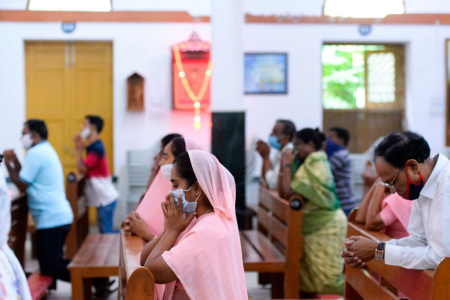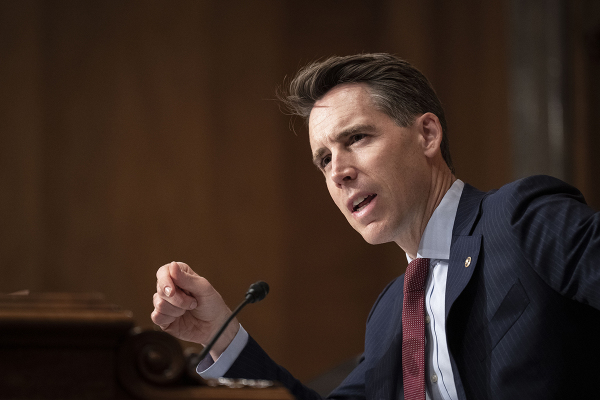Anti-conversion ordinance in India’s Uttar Pradesh will 'incite more' persecution: ICC warns

Uttar Pradesh, India’s most populous state, has approved a controversial anti-conversion law that experts warn will “incite more religiously motivated violence” as attacks on Indian Christians and other religious minorities continue to escalate.
According to persecution watchdog International Christian Concern, the Uttar Pradesh state Cabinet, presided over by Chief Minister Yogi Adityanath, approved a draft ordinance in November that's purportedly intended to curb "forcible or dishonest religious conversions."
Under the ordinance, religious conversions will be punished by a jail term of one to five years and a fine of 15,000 rupees (approximately $203). And religious conversions of minors, women, or members of low caste communities will be punished by a jail term of three to 10 years and a fine of 25,000 rupees (approximately $339).
ICC notes that since Uttar Pradesh's state Legislature is not in session, India's Constitution gives the governor power to put the ordinance into effect and it will remain valid for six months. It will then be confirmed by Uttar Pradesh's state Legislature when it reconvenes.
As a justification for the ordinance, the chief minister reportedly cited concerns about “love jihad,” the fear that many Hindu women are being tricked into converting to Islam by Muslim men through marriage.
However, ICC notes that historically, radical Hindu nationalists have used the “specter of mass religious conversions to Christianity as justification to pass similar laws limiting religious freedom,” though Christians make up just 2.3% of the population.
Similar anti-conversion laws have also been enacted in several states run by the ruling Hindu nationalist Bharatiya Janata Party (BJP), including Odisha, Madhya Pradesh, Arunachal Pradesh, Chhattisgarh, Gujarat, Jharkhand, Himachal Pradesh, and Uttarakhand.
These laws embolden Hindu militant groups to make false accusations against Christians. Police often overlook violence perpetrated against believers due to the false accusations of forced conversions.
William Stark, ICC’s Regional Manager for South Asia, said the group is “deeply disappointed” to see Uttar Pradesh approve the anti-conversion ordinance.
“Similar laws are widely abused by radical Hindu nationalists due to their legal ambiguity,” Stark said. “Often, these laws provide justification for nationalists to attack Christian leaders with impunity. One simply needs to claim that a pastor was engaged in forceful conversions to justify an assault. With attacks on Indian Christians and other minorities continuing to escalate, the approval of an anti-conversion ordinance in India’s most populous state will only incite more religiously motivated violence.”
Nearly 200 million people live in Uttar Pradesh, with only an estimated 350,000 identifying as Christian.
A July report from the Delhi-based Evangelical Fellowship of India found that most of the country’s hate crimes occurred in Uttar Pradesh, with numerous reports of Christians being falsely accused, threatened and attacked.
Persecution watchdog group Open Doors USA notes that since Prime Minister Narendra Modi and his BJP party rose to power in 2014, India’s Christian minority has faced increasing persecution from Hindu militant groups.
The country is ranked at No. 10 on Open Doors USA’s 2020 World Watch List of the countries where it's most difficult to be a Christian.
However, India was not named by the U.S. State Department as among the “countries of particular concern" that have “engaged in or tolerated systematic, ongoing and egregious violations of religious freedom.”
In a statement to The Christian Post, advocacy group The Federation of Indian American Christian Organizations of North America (FIACONA) said it was “deeply disappointed” India did not receive the CPC designation this year.
“The national government allowed violence against minorities and their houses of worship to continue with impunity and engaged in and tolerated hate speech and incitement to violence,” FIACONA said. “The Indian government headed by the Hindu nationalist BJP party continues to claim so conveniently that all such violence against Christians in India are isolated incidents and not the policy of the government.
"While it may not be the policy of the Indian government, it is public knowledge that it is the policy of Prime Minister Modi's Hindu nationalist political party which is heading the government,” the group added.





















